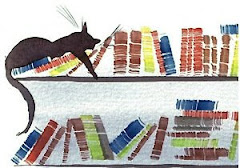Media pundits look restlessly for political events similar to the harshly contested Democratic race in this year's primaries; the 1976 elections (on the Republican side) and the 1980 competition between Edward Kennedy and Jimmy Carter, on the Democratic side, are often cited in the search for historical lessons that might be applied to the present.
However, former US Ambassador Dennis Kux has another example in mind: "I think that all these people are just not old enough to remember the primary that is most similar to the ongoing one; the Republican race of 1952," he told Valentina Pasquali at the Woodrow Wilson Center for International Scholars, one of the most respected think tanks in Washington DC.
In 1952, Senator Robert Taft, son of former President William Taft and leader of the Republican "Old Guard," tried to capture the GOP nomination against Dwight Eisenhower, the war hero that wasn't even affiliated with the party. The Republican bosses decided that, after 20 years of Roosevelt-Truman domination, they wanted to win the White House at any cost (what happened on the Democratic side was covered here).
Just like today, the incumbent was out of the race, since President Harry Truman had announced he would not seek a second full term (although an exception for him was included in the XXII Constitutional amendment). Just like it might happen this year, the race between Eisenhower and Taft went all the way to the convention and was only decided by delegate-count. Moreover, just like in 2008, a fight over the standing of some delegations happened in 1952, when accusations of rigging in the primaries in Texas and Georgia heated up the convention and gave rise to a litigation over the seating of delegates.
"So many observers keep repeating that the clash between Obama and Clinton will end up damaging the party in November by creating divisions among the democratic voters," Ambassador Kux told Valentina Pasquali. "I really don't agree."
In 1952, despite the prolonged battle inside the party, Dwight Eisenhower went on to take the White House in a landslide, with an 11% victory margin over his Democratic opponent Adlai Stevenson II.












